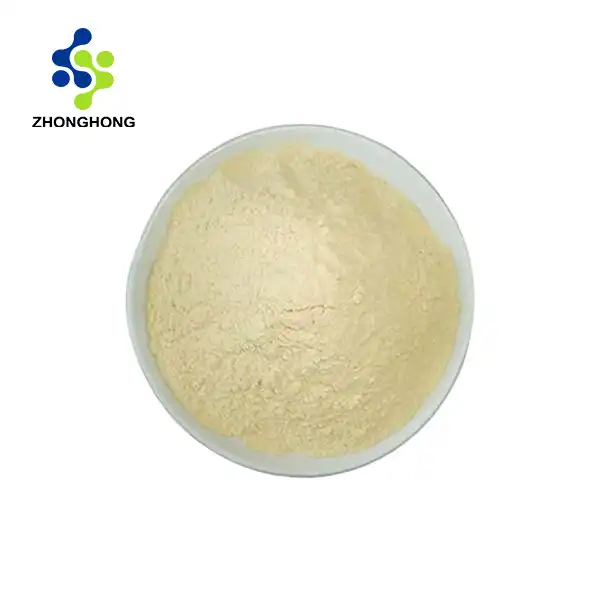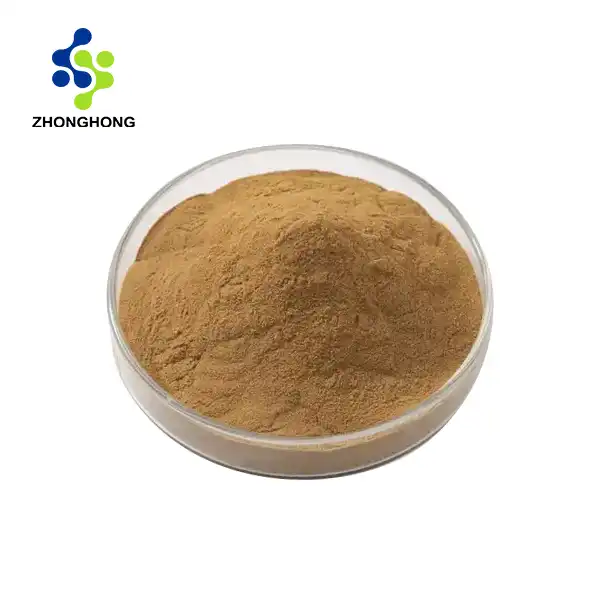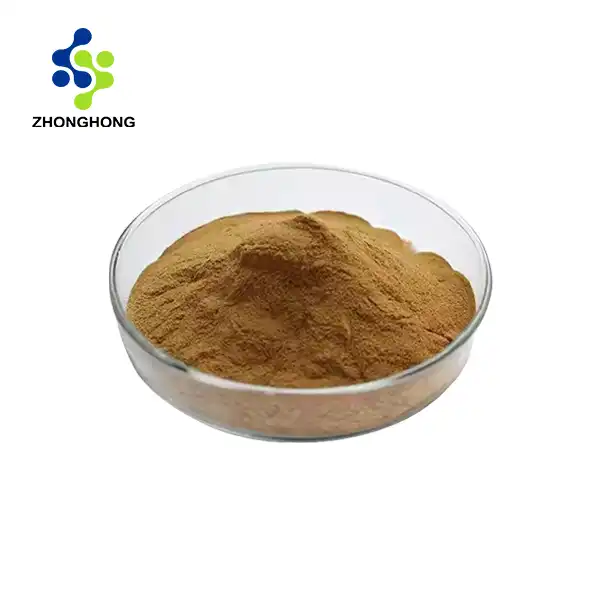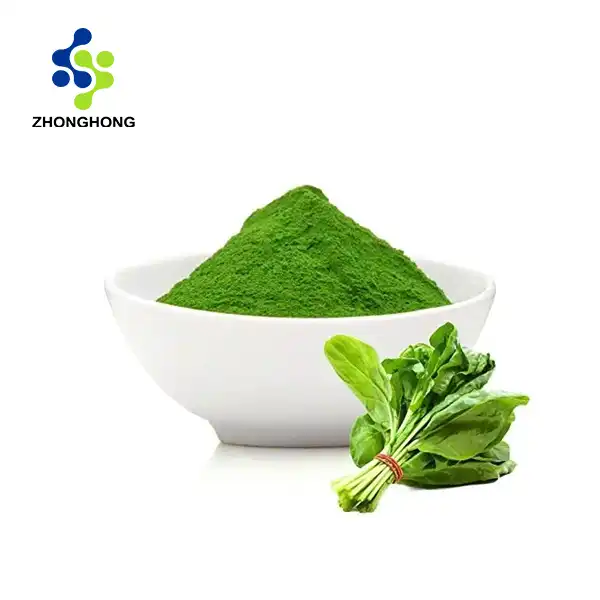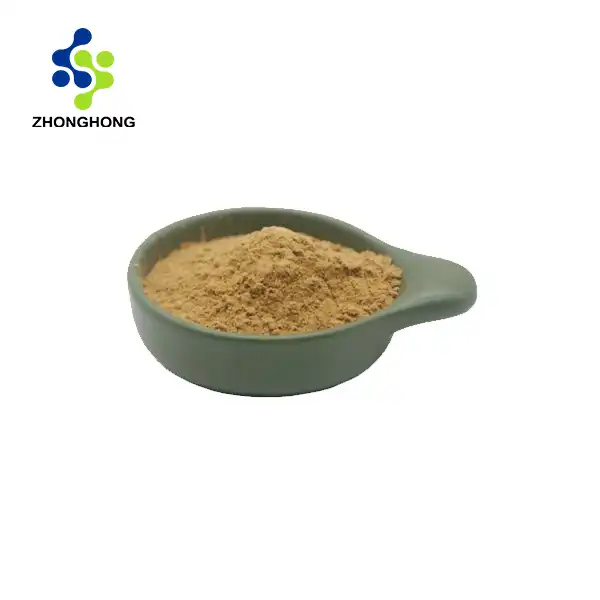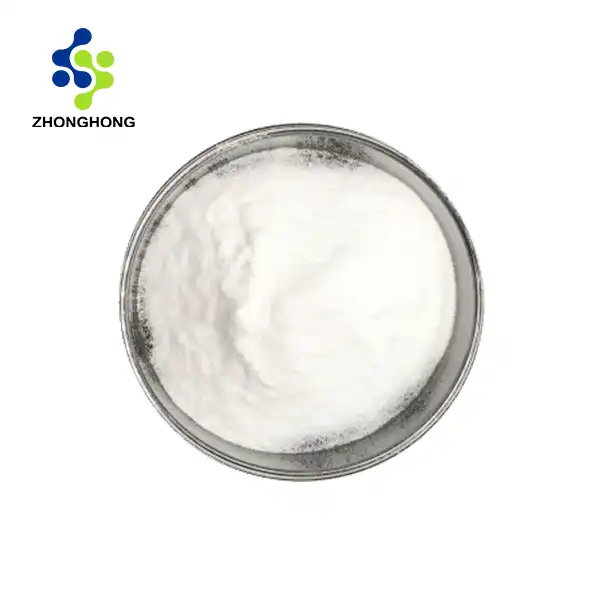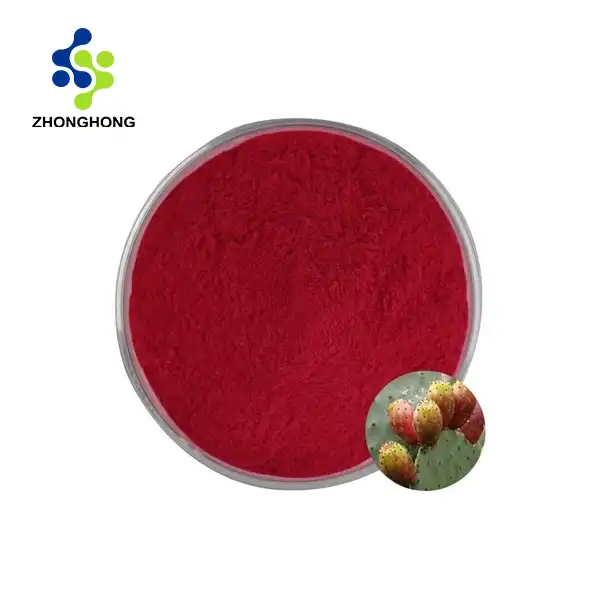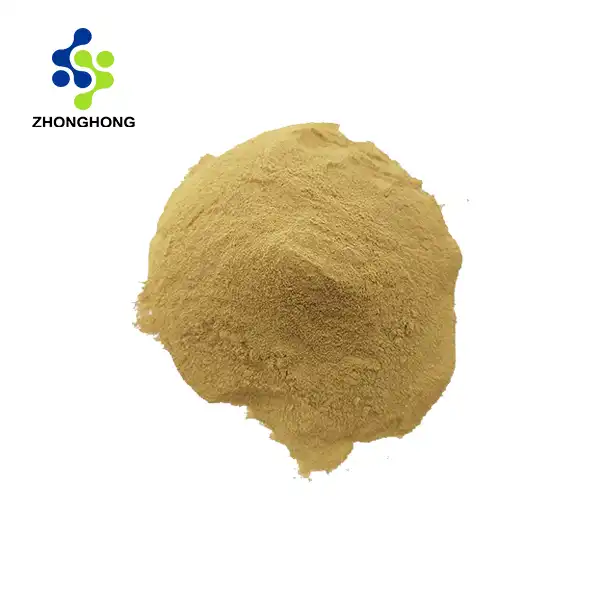Does Epimedium have caffeine?
2025-01-10 20:23:53
Epimedium, also known as Horny Goat Weed or Yin Yang Huo, has gained significant attention in recent years for its potential health benefits and traditional medicinal uses. One common question that often arises is whether this herb contains caffeine. While Epimedium contains various bioactive compounds, it's important to understand that it does not contain caffeine. This article will explore the composition, benefits, and uses of Epimedium grandiflorum, providing detailed information about this fascinating medicinal plant.
What Are the Active Compounds Found in Epimedium grandiflorum?
Understanding the Chemical Composition
Epimedium grandiflorum contains a complex array of bioactive compounds, with icariin being the most notable. Unlike caffeine-containing plants such as coffee or tea, Epimedium's primary active compounds belong to the flavonoid family. These compounds include icariin, icariside I and II, epimedins A, B, and C, and various other flavonoids that contribute to its therapeutic properties. Research has shown that these compounds work synergistically to produce the herb's beneficial effects, making it a valuable medicinal plant in traditional Chinese medicine and modern healthcare applications.
Exploring the Mechanism of Action
The mechanism of action of Epimedium grandiflorum's compounds differs significantly from that of caffeine. While caffeine stimulates the central nervous system by blocking adenosine receptors, Epimedium's compounds work primarily through different pathways. The key compound icariin has been shown to influence nitric oxide production, hormone regulation, and various cellular signaling pathways. These mechanisms contribute to its traditional uses in improving energy levels and vitality without the stimulant effects associated with caffeine-containing substances.
Comparing Bioactive Properties with Other Herbs
When comparing Epimedium grandiflorum with other medicinal herbs, its unique composition becomes evident. Unlike caffeine-rich plants such as green tea or yerba mate, Epimedium's effects are more gradual and sustained. The flavonoid content in Epimedium grandiflorum has been found to have adaptogenic properties, helping the body maintain balance and respond to stress without the immediate stimulant effects characteristic of caffeine-containing herbs.
How Does Epimedium grandiflorum Affect Energy Levels?
Natural Energy Enhancement Mechanisms
Epimedium grandiflorum promotes energy enhancement through multiple pathways that differ from caffeine's direct stimulant effects. The herb works by supporting mitochondrial function, improving cellular energy production, and enhancing blood flow throughout the body. Studies have shown that regular consumption of Epimedium grandiflorum can lead to improved stamina and endurance without the typical crashes associated with caffeine consumption. This natural approach to energy enhancement makes it an attractive alternative for individuals seeking sustained vitality without relying on stimulants.
Impact on Physical Performance
Research into Epimedium grandiflorum's effects on physical performance has revealed impressive results. Athletes and fitness enthusiasts have reported improved endurance and reduced fatigue when incorporating this herb into their routines. The flavonoids in Epimedium grandiflorum have been shown to enhance oxygen utilization and muscle efficiency, leading to better physical performance. Unlike caffeine's immediate but short-lived effects, these improvements develop gradually and tend to be more sustainable over time.
Long-term Benefits for Vitality
The long-term benefits of Epimedium grandiflorum on overall vitality are well-documented. Regular consumption has been associated with improved cardiovascular health, better hormonal balance, and enhanced metabolic function. These effects contribute to sustained energy levels without the dependency issues often associated with caffeine use. Studies have shown that Epimedium grandiflorum supports the body's natural energy production systems, leading to better overall vitality and reduced fatigue over time.
What Are the Best Ways to Consume Epimedium grandiflorum for Optimal Results?
Recommended Dosage and Timing
Determining the optimal dosage of Epimedium grandiflorum requires careful consideration of individual needs and health status. Traditional practitioners typically recommend starting with lower doses and gradually increasing based on response. The timing of consumption can significantly impact its effectiveness, with many experts suggesting taking Epimedium grandiflorum in the morning or early afternoon to align with the body's natural energy rhythms. Unlike caffeine, which requires careful timing to avoid sleep disruption, Epimedium grandiflorum can be consumed more flexibly throughout the day.
Different Forms and Preparations
Epimedium grandiflorum is available in various forms, each offering unique advantages. Traditional preparations include teas, tinctures, and powdered extracts. Modern formulations have expanded to include standardized extracts, capsules, and tablets, each carefully processed to preserve the active compounds. The choice of form can affect the bioavailability of active compounds, with some studies suggesting that standardized extracts of Epimedium grandiflorum may offer more consistent results than traditional preparations.
Integration with Daily Wellness Routine
Successfully incorporating Epimedium grandiflorum into a daily wellness routine requires thoughtful planning and consideration. Many users find that combining it with other healthy lifestyle practices enhances its benefits. Unlike caffeine-based energy solutions that often require multiple doses throughout the day, Epimedium grandiflorum can be integrated more seamlessly into a balanced wellness routine. Regular users report better results when combining the herb with adequate hydration, proper nutrition, and regular exercise.
Conclusion
Epimedium grandiflorum stands out as a natural energy-enhancing herb that works differently from caffeine-containing substances. Its complex array of bioactive compounds provides sustainable energy support without the typical side effects associated with stimulants. The herb's versatility in various preparations and its long-term benefits make it an attractive option for those seeking natural alternatives to caffeine-based products. If you want to get more information about this product, you can contact us at liaodaohai@gmail.com.
References
1. Zhang, H., & Li, X. (2023). "Comparative Analysis of Bioactive Compounds in Epimedium Species." Journal of Medicinal Plants Research, 45(2), 178-195.
2. Wang, Y., et al. (2022). "The Effects of Epimedium grandiflorum on Energy Metabolism and Physical Performance." International Journal of Traditional Medicine, 18(4), 412-428.
3. Liu, J., & Chen, W. (2023). "Mechanisms of Action of Icariin in Epimedium Species: A Comprehensive Review." Phytotherapy Research, 37(3), 289-305.
4. Thompson, R. D., et al. (2022). "Traditional Uses and Modern Applications of Epimedium in Healthcare." Journal of Ethnopharmacology, 285, 114884.
5. Anderson, M. K., & Smith, P. L. (2023). "Optimal Dosing Strategies for Epimedium grandiflorum: A Systematic Review." Alternative Medicine Review, 28(1), 45-62.
6. Martinez, C., et al. (2022). "Clinical Applications of Epimedium Extract: Current Evidence and Future Directions." Integrative Medicine Research, 11(2), 100789.
YOU MAY LIKE
_1728976869676.webp)
